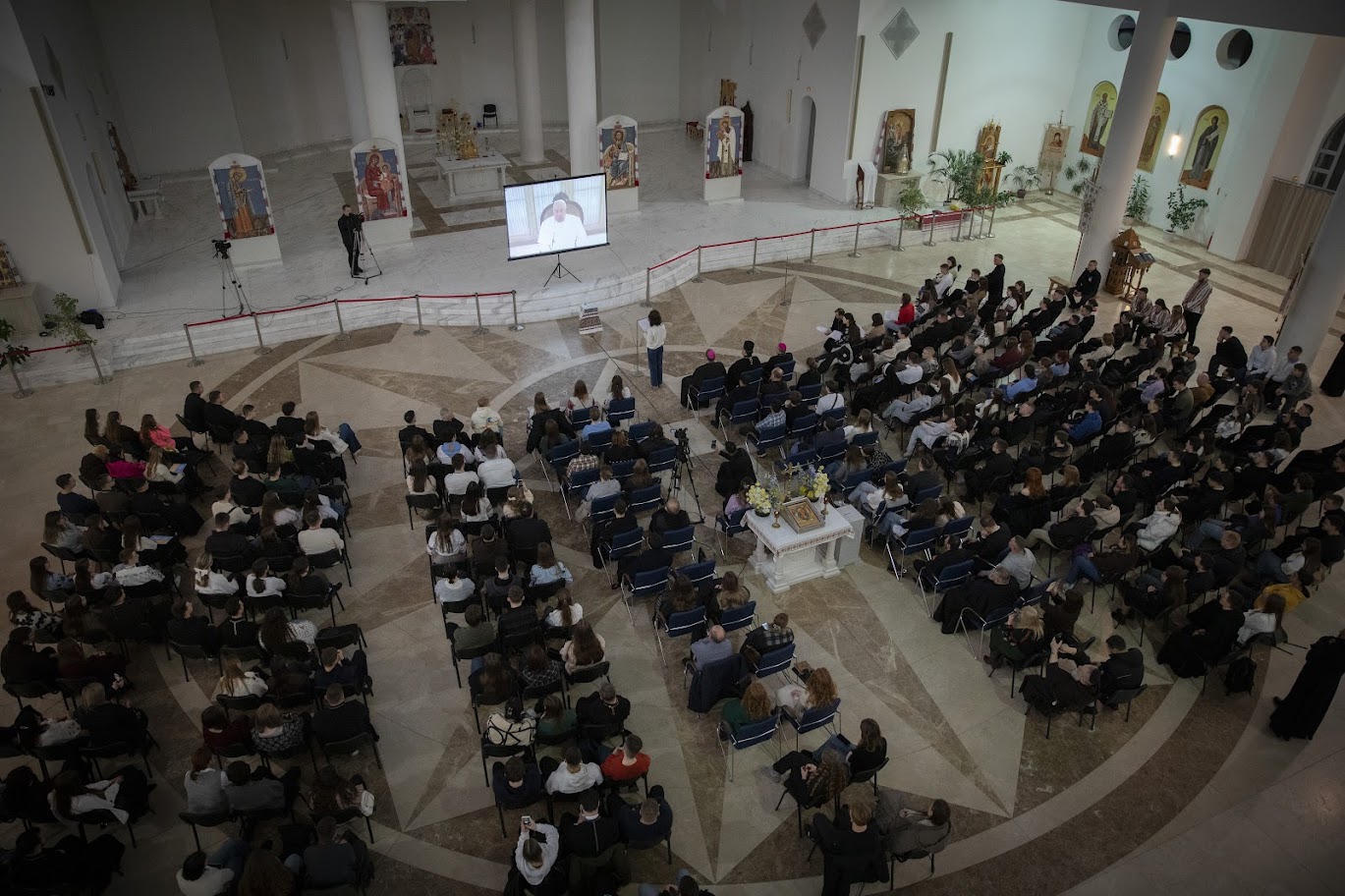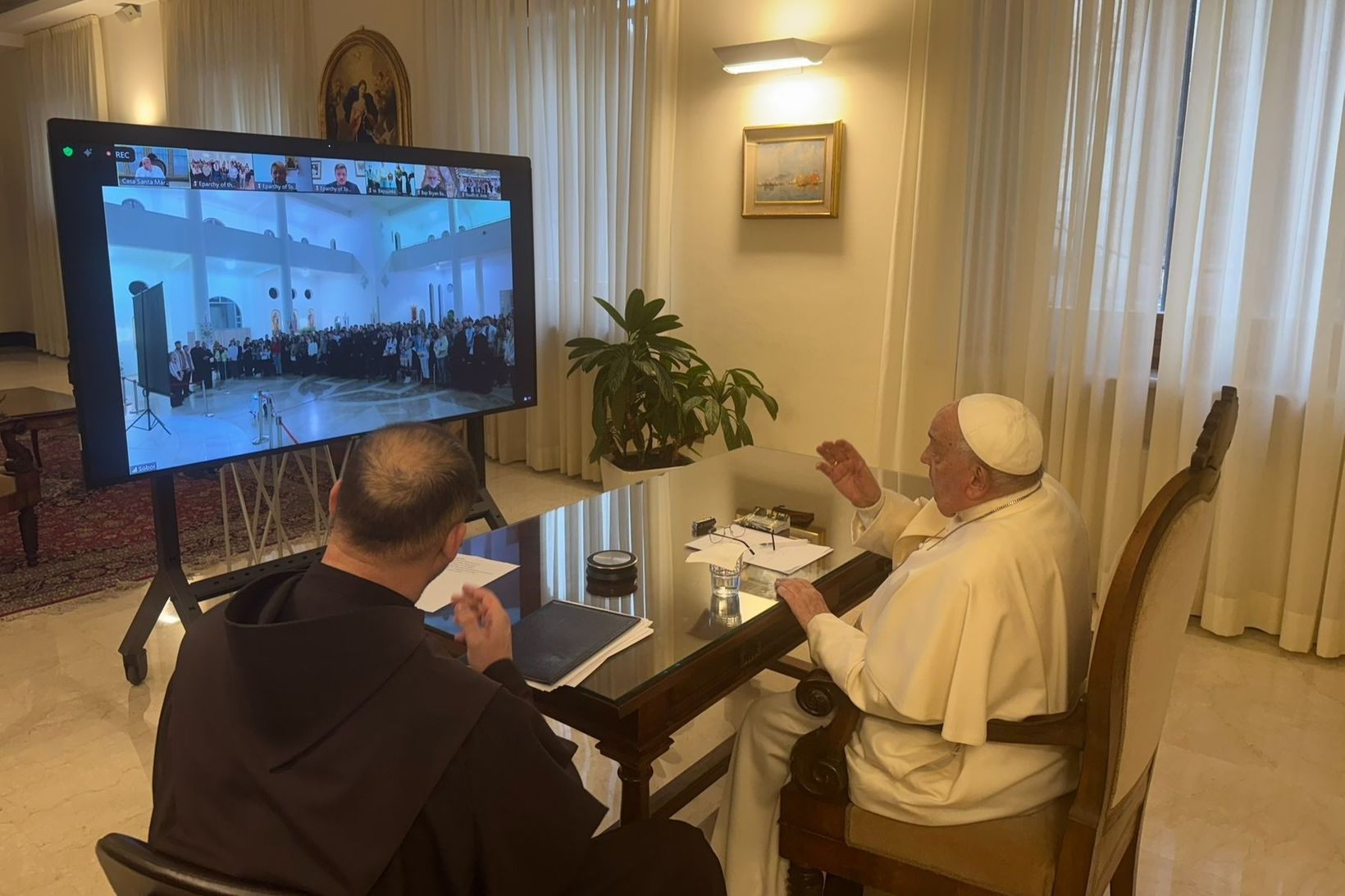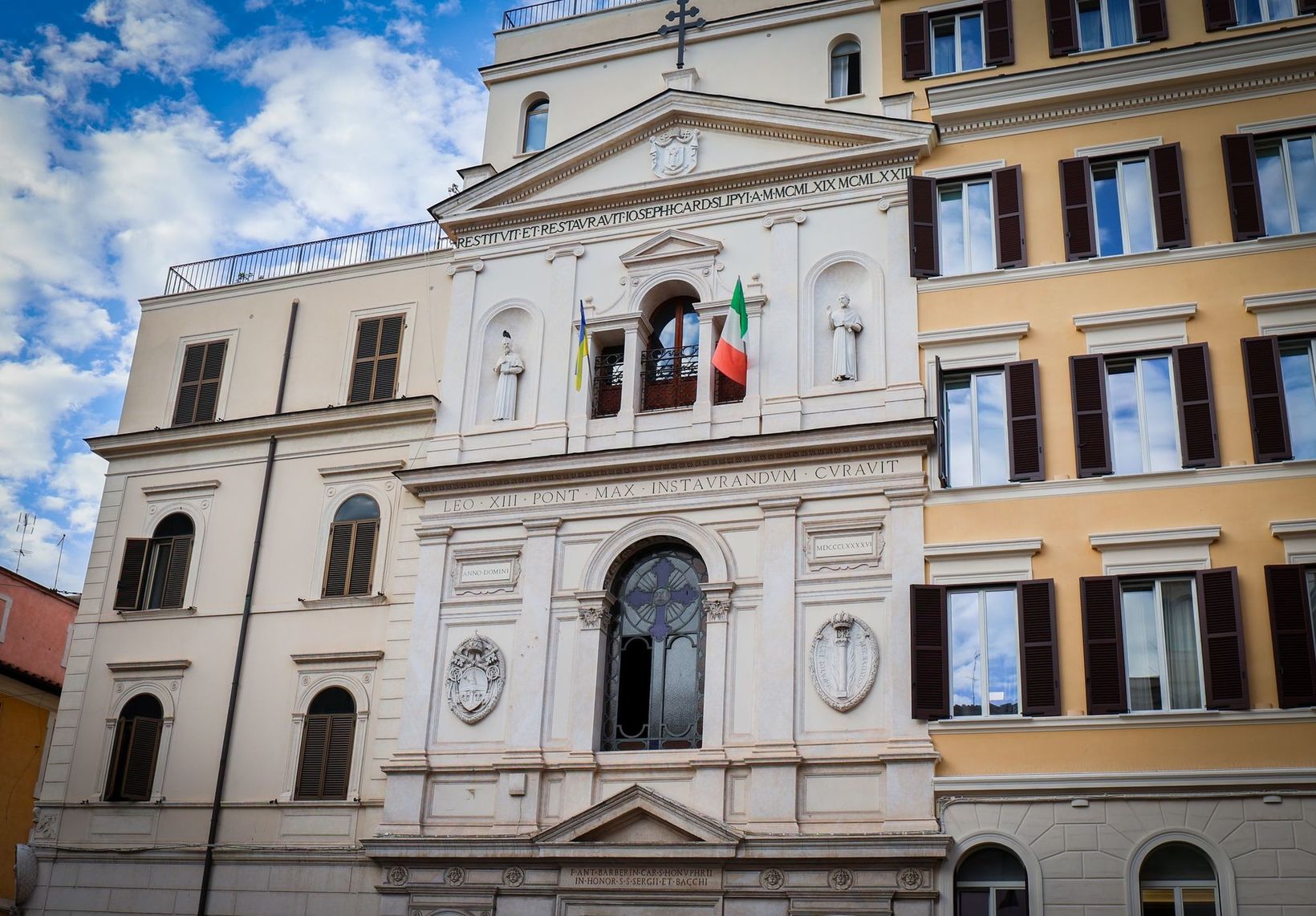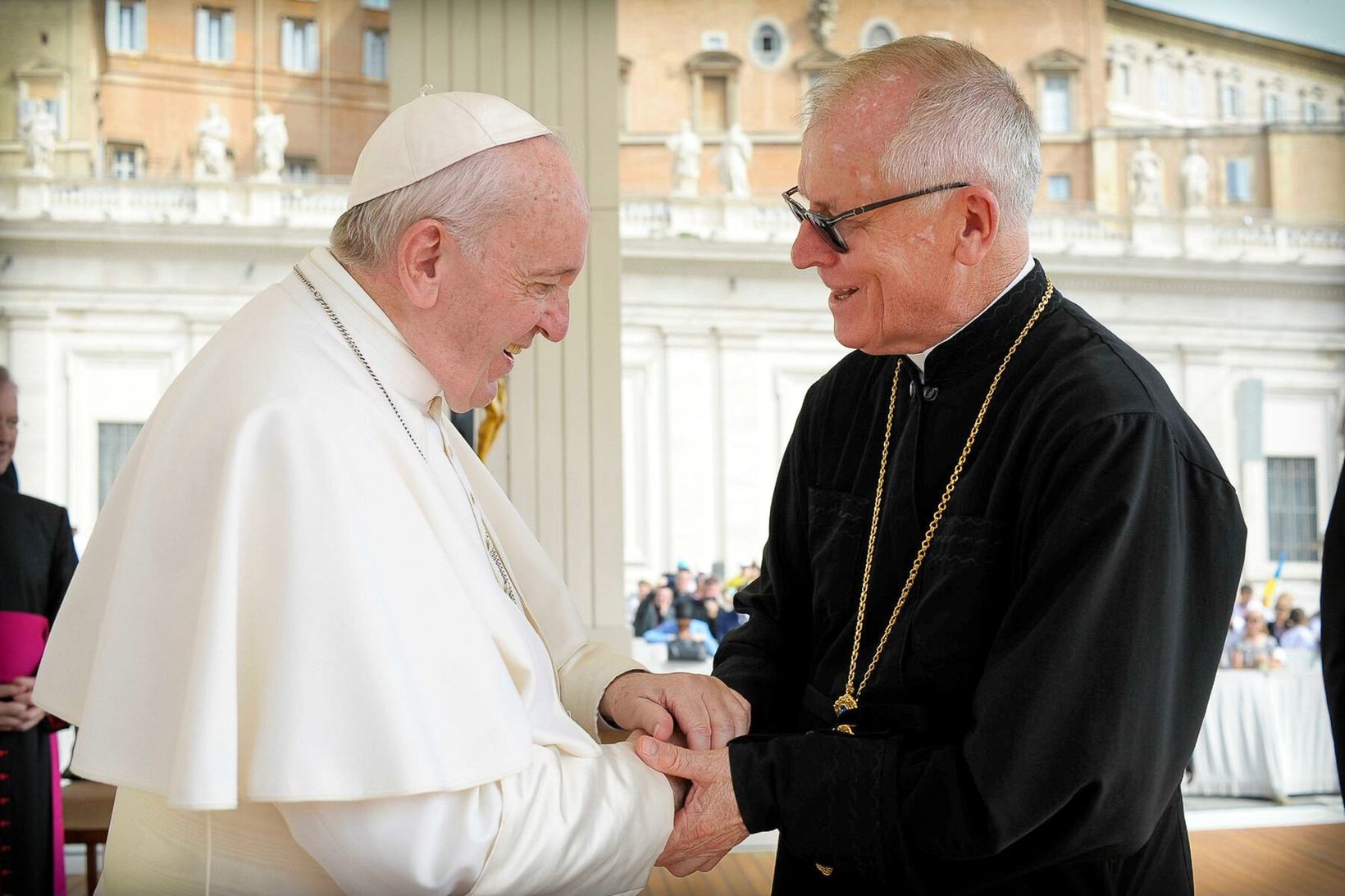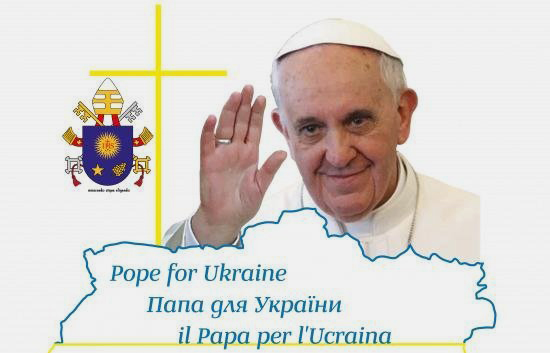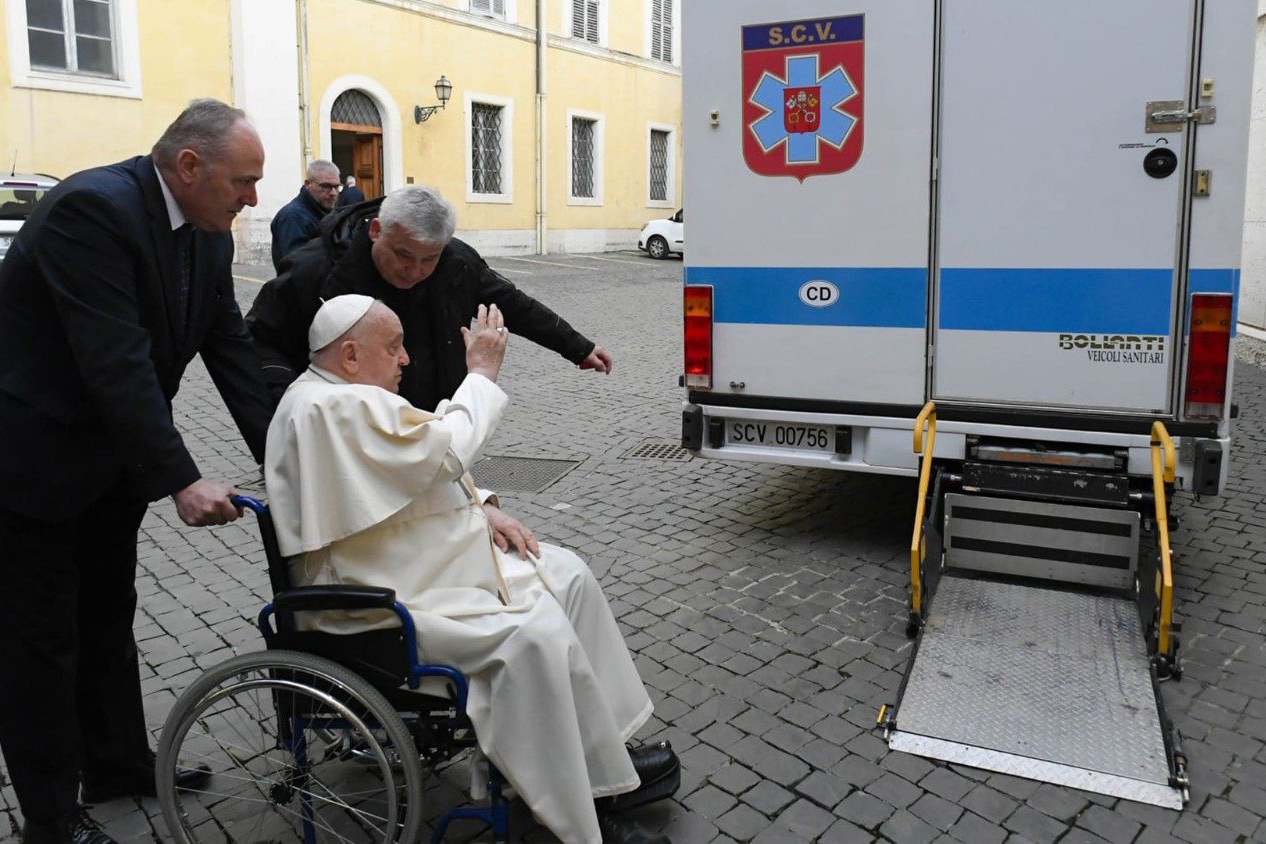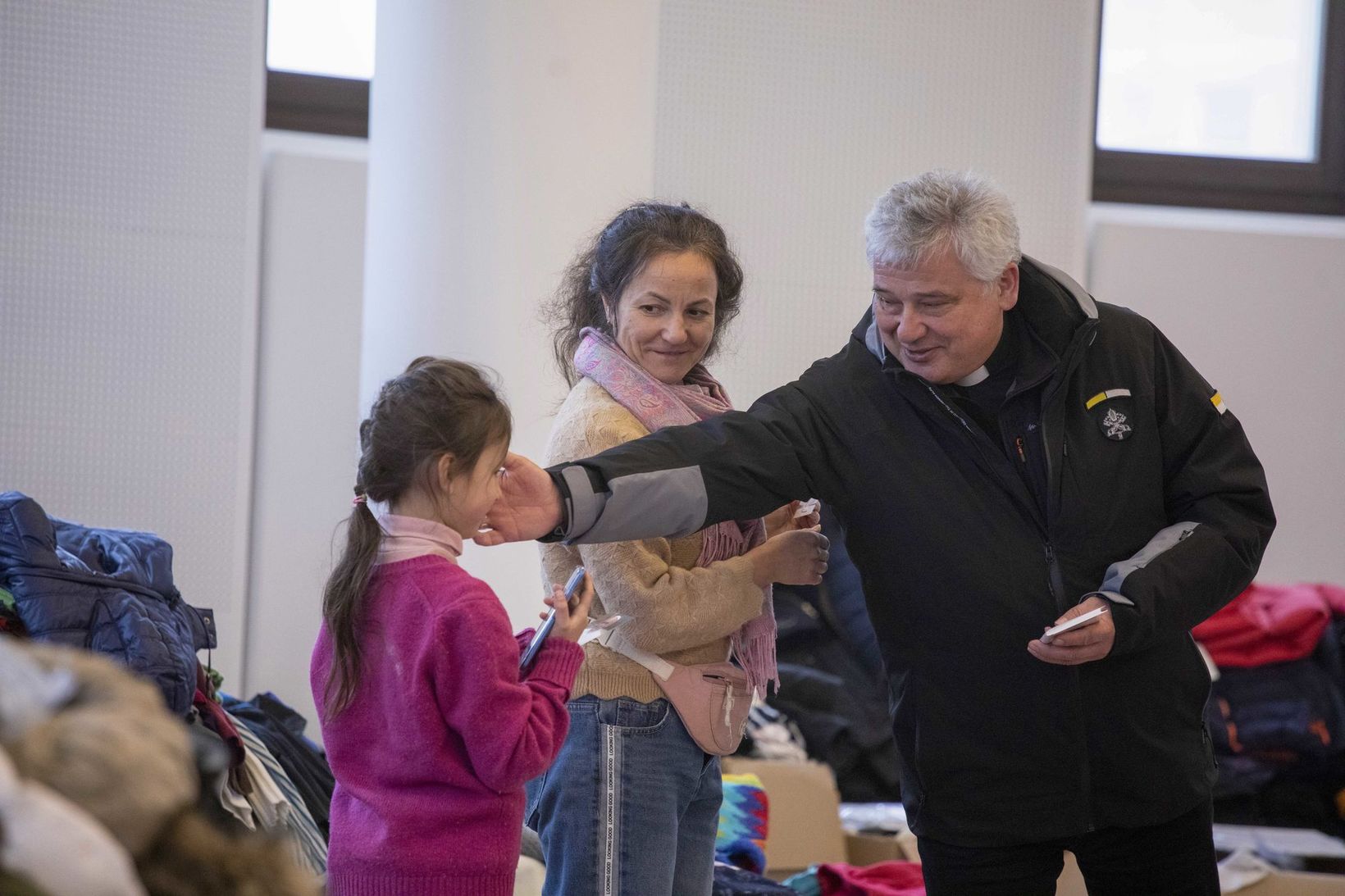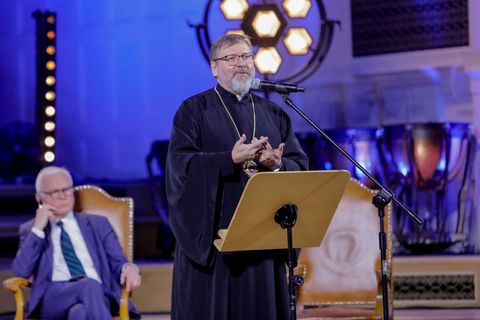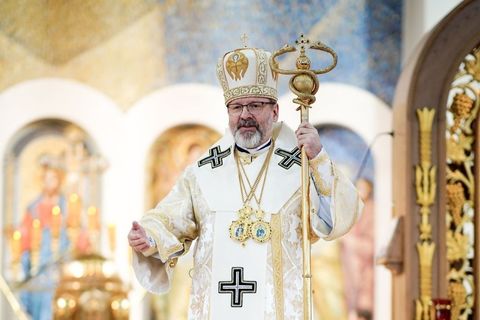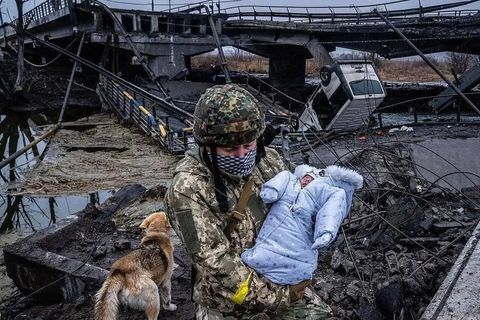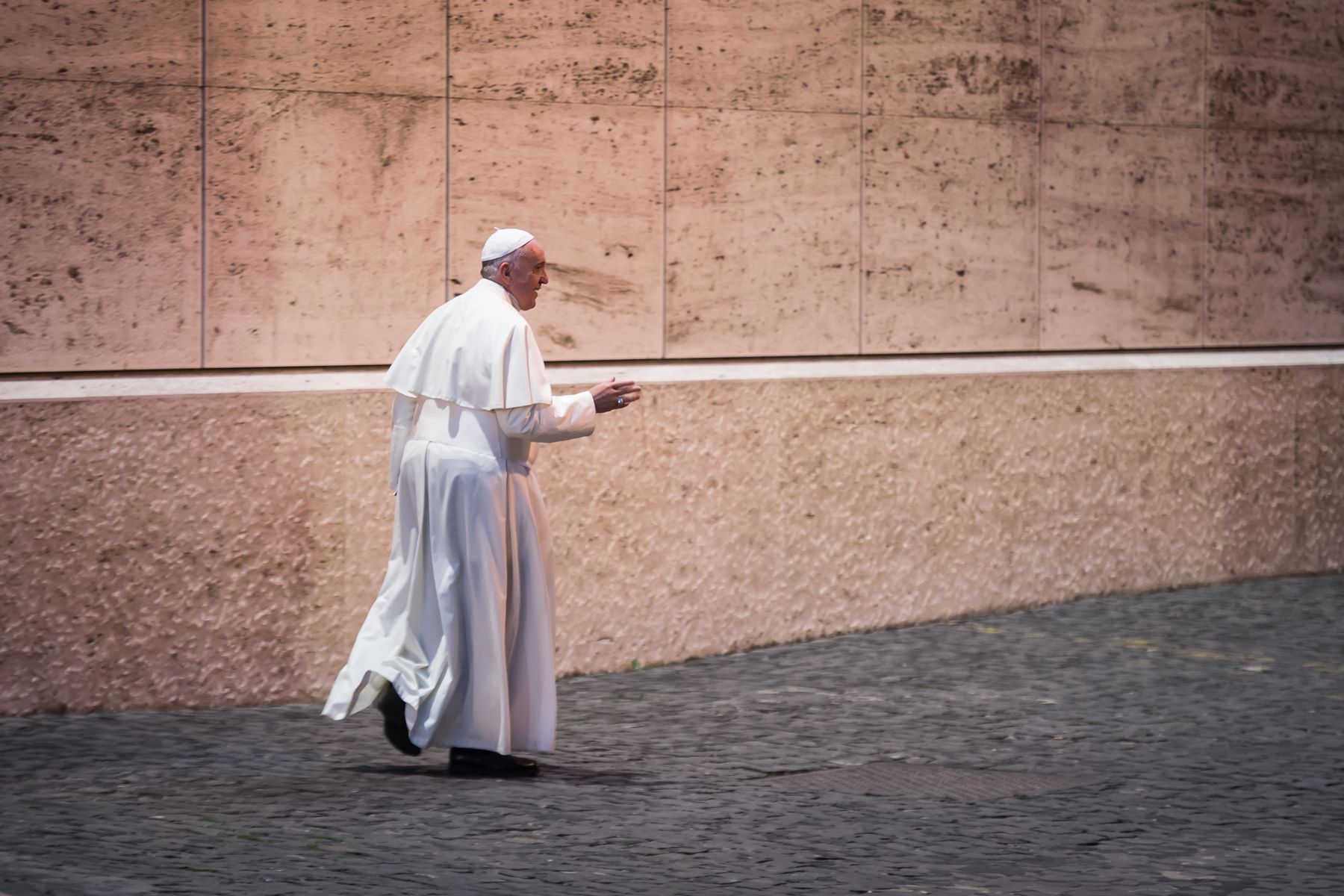
Pope Francis’ Gestures That Will Go Down in Ukrainian History
As the world bids farewell to Pope Francis, often described as “the pontiff who shook up the Catholic Church,” Ukrainians thank him for his powerful global voice in defense of “martyred Ukraine.” Despite some controversial statements, his pontificate had a profound impact on the history of the Ukrainian people through gestures of solidarity, prayer, and tangible assistance.
A voice for Ukraine on the global stage
Constant prayer for “martyred Ukraine”
Since the beginning of his pontificate in 2013, Pope Francis has paid special attention to Ukraine, but since 2022, when full-scale Russian aggression began, this attention has grown into constant concern and prayerful intercession. Against the backdrop of geopolitical turmoil, the Pope’s voice has become one of the strongest voices in the world in speaking out about the suffering of the Ukrainian people.
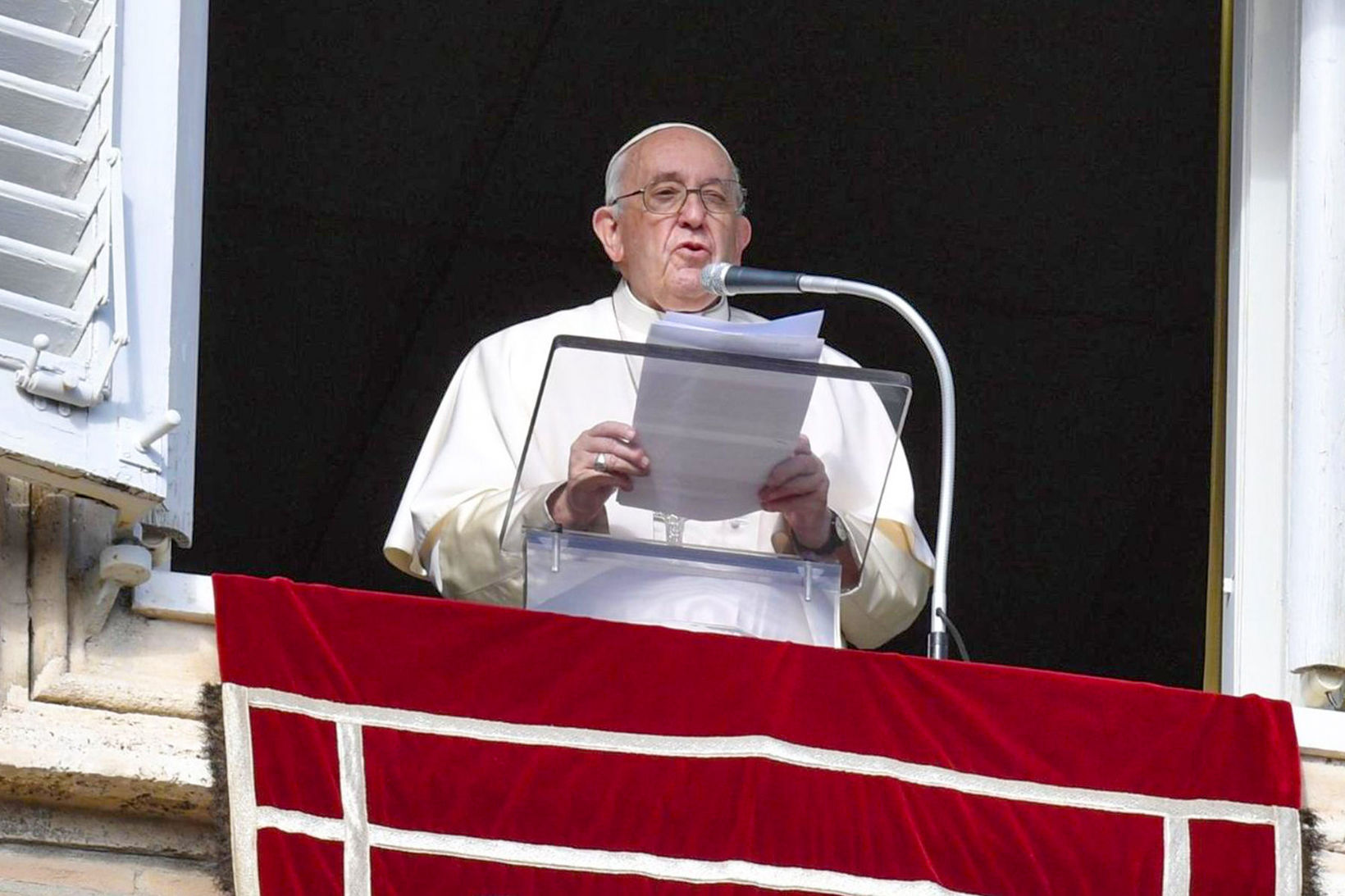
“Let us pray for martyred Ukraine” — these words have become a recurring refrain in the pontiff’s public speeches. Every Sunday after the Angelus prayer, at weekly general audiences, in Christmas and Easter messages, the Holy Father constantly reminded the world of the tragedy unfolding on Ukrainian soil. Addressing the diplomatic corps and world leaders, he repeatedly emphasized the moral duty of the international community to seek ways to establish a just and lasting peace in Ukraine.
On the penultimate day of his life, on Easter Sunday, he said: “May the Risen Lord bring the Paschal gift of peace to Ukraine and urge all parties involved to continue their efforts to achieve a just and lasting peace.”
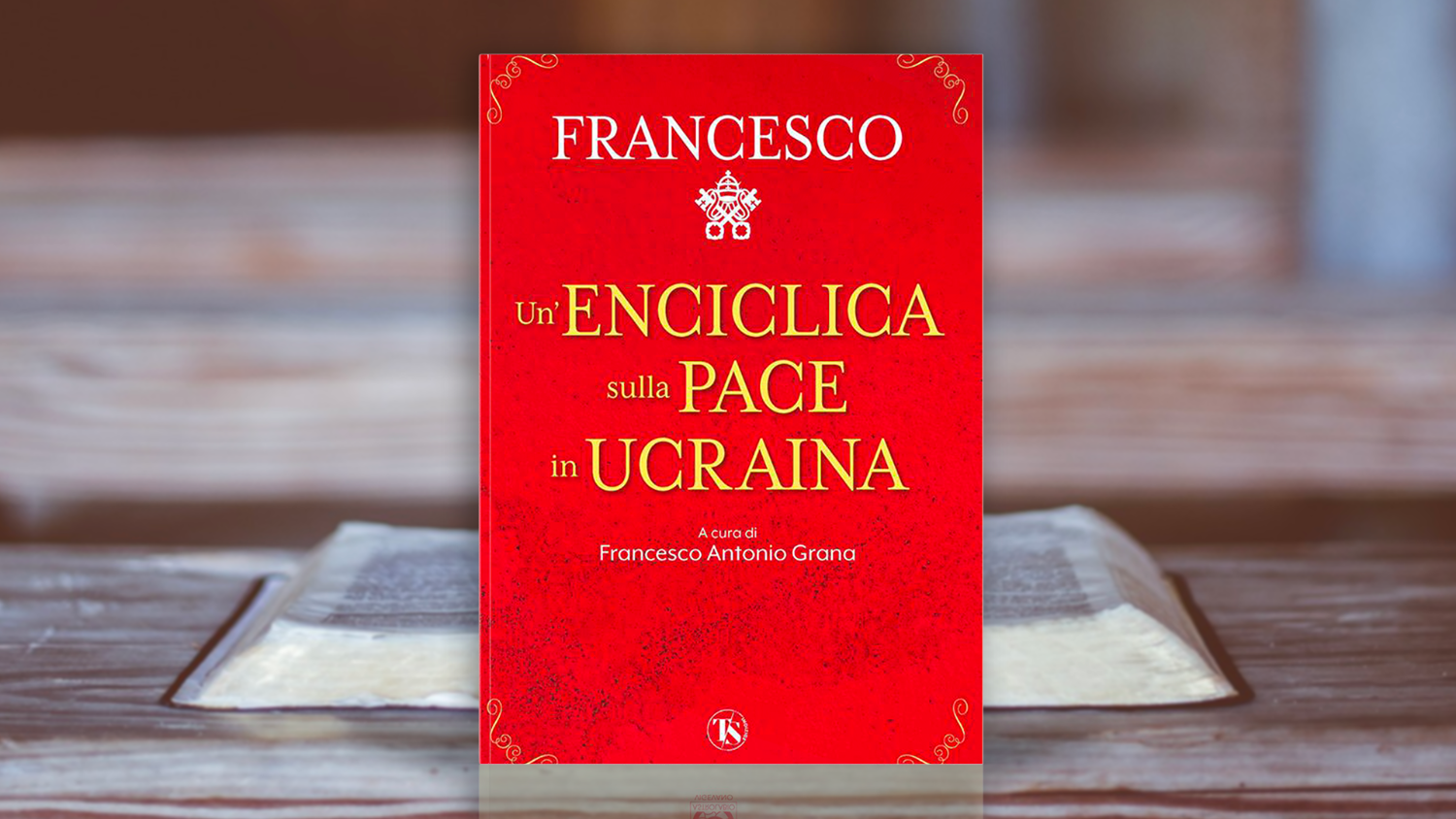
Pope Francis has spoken out so often and consistently in support of Ukraine since the outbreak of the full-scale Russian invasion that his statements have been compiled into a separate book, Encyclical Letter on Peace. This publication is an important documentary testimony to the pontiff’s unfailing attention to the suffering of the Ukrainian people and his tireless calls for a just peace.
Gesture with the Ukrainian flag from Bucha
In April 2022, after the atrocities committed by Russian troops in Bucha were exposed, Pope Francis unfurled a bloodstained Ukrainian flag brought from the city during a general audience at the Vatican. He kissed the flag and invited Ukrainian refugee children who had fled the war to join him.
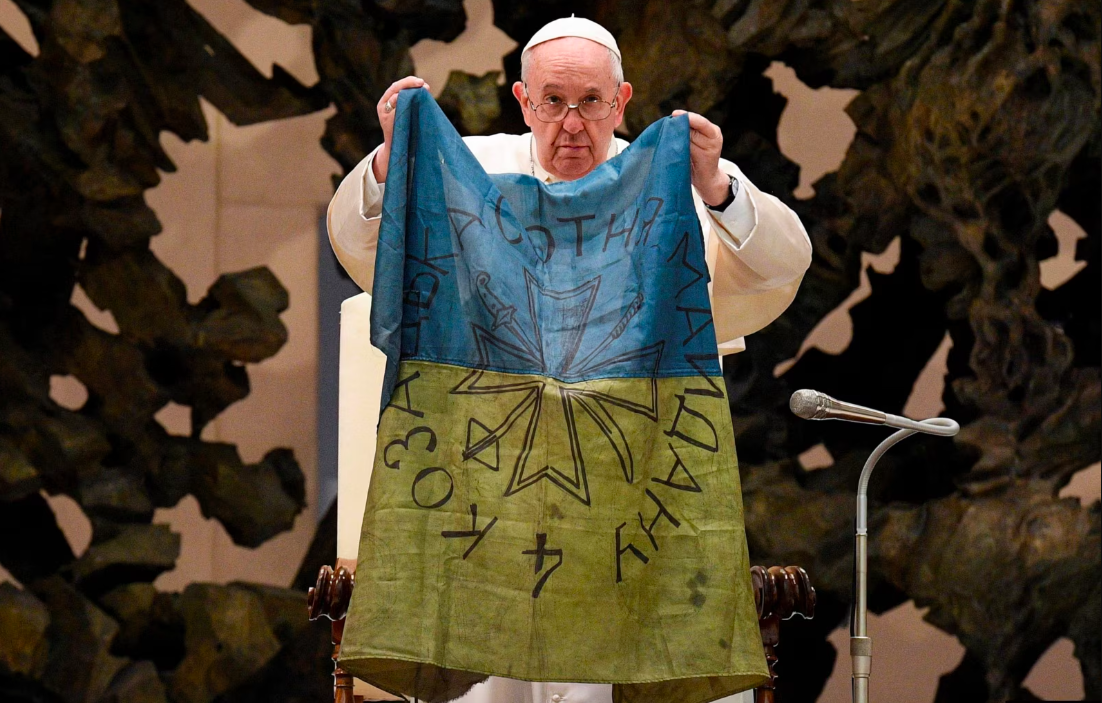
The Holodomor recognized as genocide
The Pope’s recognition of the Holodomor as genocide against the Ukrainian people was of particular significance. In November 2022, Francis publicly called the Holodomor of 1932–1933 “genocide artificially provoked by Stalin.” This was the strongest condemnation of Soviet crimes by the Vatican in its entire history. The pontiff drew parallels between the suffering of Ukrainians then and now, speaking of the “martyrdom” of modern Ukrainians — children, women, and the elderly — from military aggression: “Let us remember the long-suffering Ukraine. This Saturday marks the anniversary of the horrendous genocide of the Holodomor, the deliberate starvation of millions of people in 1932–1933, artificially provoked by Stalin. Let us pray for the victims of this genocide, and let us pray for the many Ukrainians, children and women, the elderly, and the little ones who are suffering today from the torment of aggression.”
Letter to the Ukrainian people
The Pope’s attention to the plight of Ukraine culminated in his personal letter to the Ukrainian people, published on November 24, 2022, nine months after the full-scale invasion began. “Dear brothers and sisters in Ukraine! […] I unite my tears with yours and want to tell you that there is not a single day when I am not close to you and keep you in my heart and in my prayers. Your pain is my pain,” Francis wrote in this unprecedented appeal. No Roman Pontiff has ever written such a letter to any other nation in the world.
Pope Francis’ online meeting with Ukrainian youth
On February 1, 2025, Pope Francis addressed Ukrainian youth from St. Martha’s House in the Vatican during an online meeting organized at the Patriarchal Cathedral of the Resurrection of Christ in Kyiv by the Apostolic Nunciature in Ukraine and the Head of the Ukrainian Greek Catholic Church, His Beatitude Sviatoslav. Participants from Kyiv, Lviv, Kharkiv, as well as Warsaw, Munich, London, Chicago, and Toronto shared their testimonies about life during the war.
The Pope called on young people to be patriotic: “Today, the mission of young Ukrainians is to be patriots. And you should not hide from all the problems you have, nor from the war. Be patriots, love your homeland! Right now, your homeland is wounded by war… And yet, love your homeland. It is a beautiful thing.” He also emphasized the importance of remembering heroes. The Pope shared a personal story about a Ukrainian soldier named Oleksandr, whose Gospel and rosary he keeps on his desk as relics: “For me, this is a relic of one of your young men who gave his life for his homeland. It rests on my desk, and I pray over it every day. We must always remember the heroes who defended their homeland.”
Strengthening the Ukrainian Church
Appointment of bishops for the UGCC
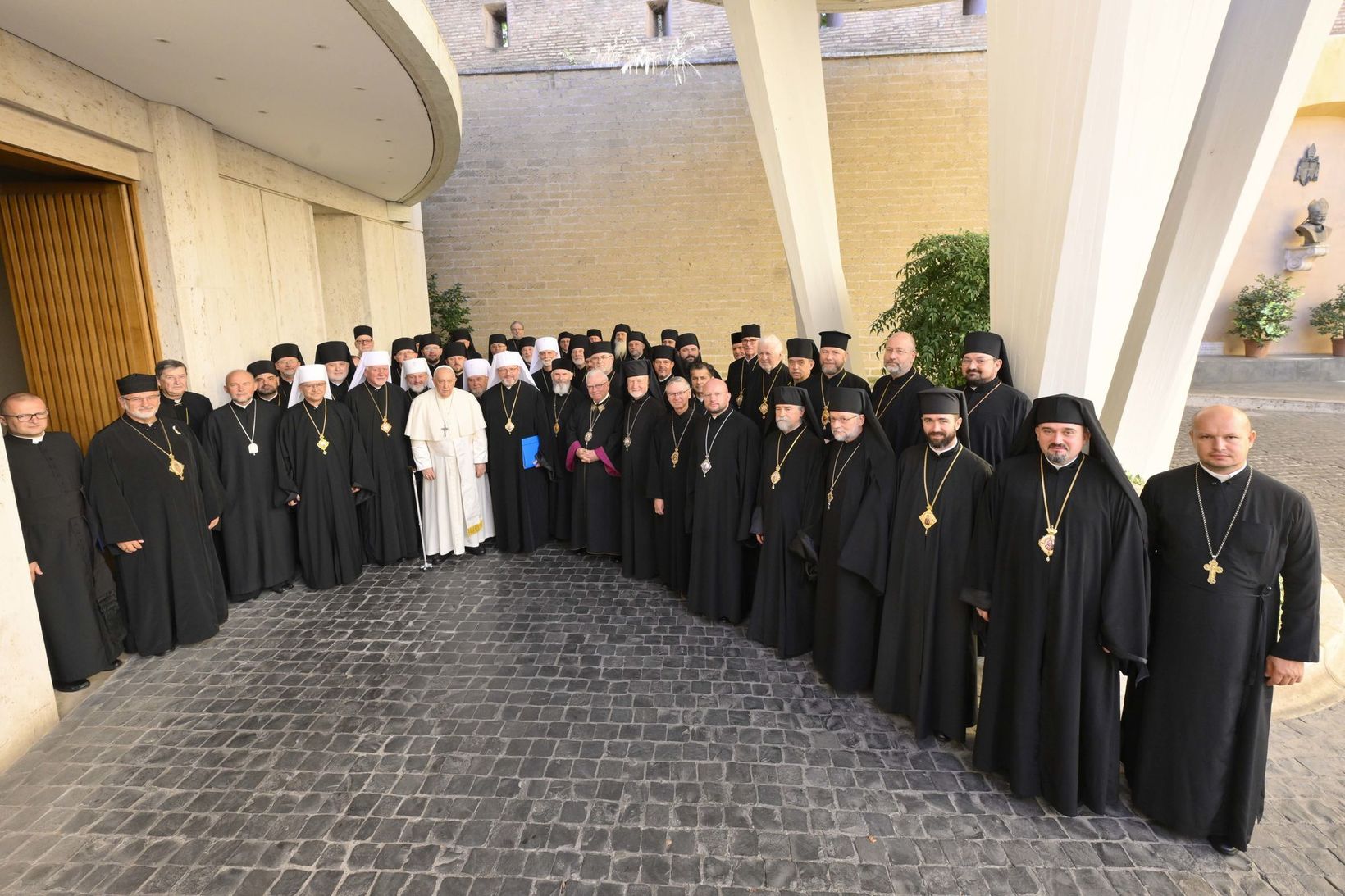 Synod of Bishops of the Ukrainian Greek Catholic Church with Pope Francis, September 6, 2023
Synod of Bishops of the Ukrainian Greek Catholic Church with Pope Francis, September 6, 2023During the pontificate of Pope Francis, the Ukrainian Greek Catholic Church received significant support and recognition. This was manifested primarily in the appointment of 22 bishops of the UGCC from 2013 to 2024, including:
2013–2015:
- Yevhen Popovych (2013)
- Mykhailo Bubniy, Vasyl Tuchapets, Bohdan Manyshyn, Josafat Moschych, Hryhoriy Komar, Bohdan Danylo (2014)
- Teodor Martynyuk (2015)
2016–2020
- Volodymyr Hrutsa (2016)
- Andriy Rabiy (2017)
- Petro Loza (2018)
- Ivan Kulyk (2019)
- Stepan Sus, Mykola Bychok (2020)
2021–2024
- Arkadiusz Trochanowski (2021)
- Maksym Ryabukha (2022)
- Mykola Semenyshyn, Andriy Khimyak, Volodymyr Firman, Petro Holiney, Michael Kwiatkowski (2023)
- Michael Smolinski (2024)
Establishment of the Apostolic Exarchate in Italy
A special turning point in relations between the Holy See and the Ukrainian Church was the establishment of the Apostolic Exarchate for Ukrainians of the Byzantine Rite in Italy on July 11, 2019. This ecclesiastical territorial unit encompassed the whole of Italy, where at that time approximately 70,000 faithful lived, united in 145 communities and spiritually cared for by 62 priests. The parish church of Saints Sergius and Bacchus in Rome became the cathedral and seat of the Apostolic Exarchate. In October 2020, the Pope appointed Bishop Dionísio Lachovicz as the first Apostolic Exarch for Ukrainian Catholics in Italy. On March 7, 2025, he appointed Bishop Hryhoriy Komar as Apostolic Administrator of the Exarchate of the Ukrainian Greek Catholic Church in Italy, entrusting him with the pastoral care of Ukrainians in Italy.
Ukrainian Cardinal Appointment
An important landmark was the announcement on October 6, 2024, of the appointment of Bishop Mykola Bychok, Eparch of the Ukrainian Greek Catholic Eparchy of Melbourne, as cardinal and his induction into the College of Cardinals during the consistory on December 7, 2024. At the age of 44, Bishop Mykola became the youngest cardinal and the seventh Ukrainian cardinal in the history of the Ukrainian Greek Catholic Church after Isidore (1385–1463), Metropolitan of Kyiv, Mychajlo Levyckyj(1774–1858), Metropolitan of Lviv and Halych, Sylwester Sembratowicz (1836–1898), Metropolitan of Lviv and Halych, Patriarch Josyf Slipyj (1892–1984), Head of the UGCC, Blessed Myroslav Ivan Lubachivsky (1914–2000), Head of the UGCC, Blessed Lubomyr Husar (1933–2017), Father and Head of the UGCC.
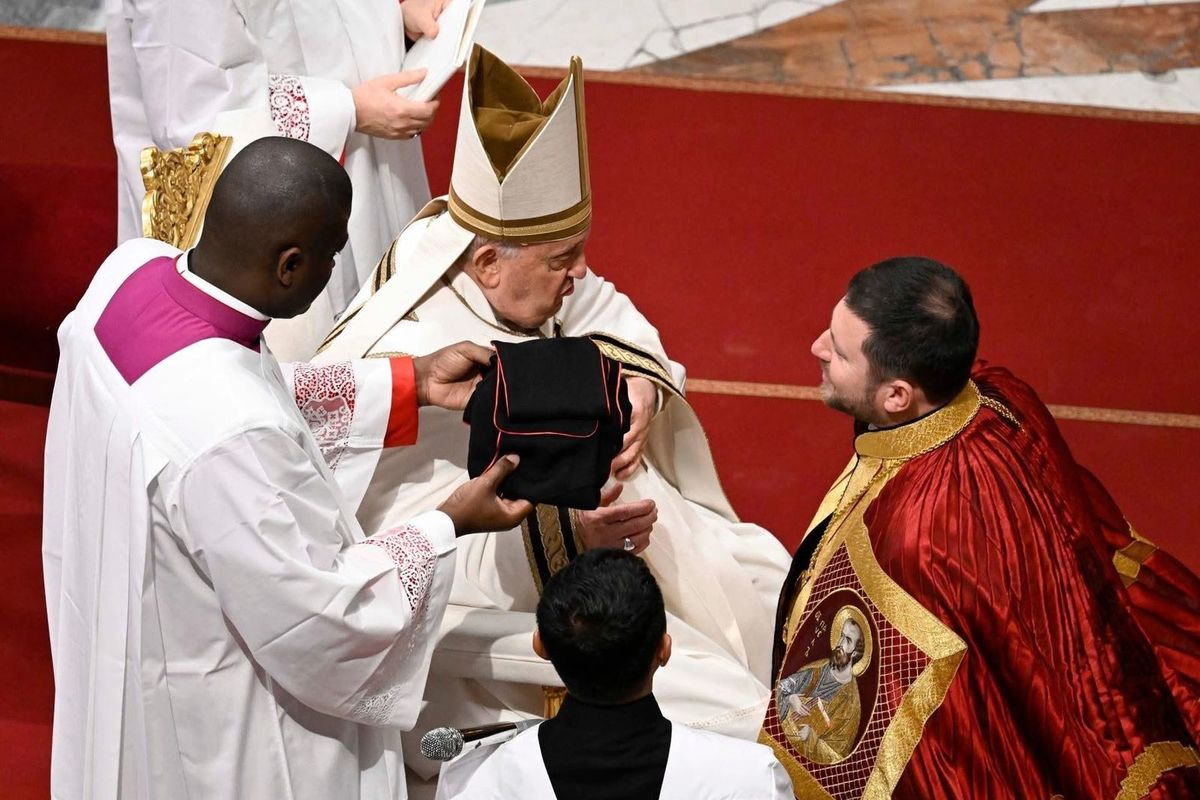
Meeting with the All-Ukrainian Council of Churches
The meeting between Pope Francis and the All-Ukrainian Council of Churches and Religious Organizations on January 25, 2023, was equally historic. For the first time in the history of the Vatican, the Pope received representatives of different faiths from Ukraine, calling their unity “a sign of peace and a source of hope.” During this meeting, Ukrainian religious leaders described the consequences of Russian aggression to the pontiff and thanked him for his spiritual and humanitarian support.
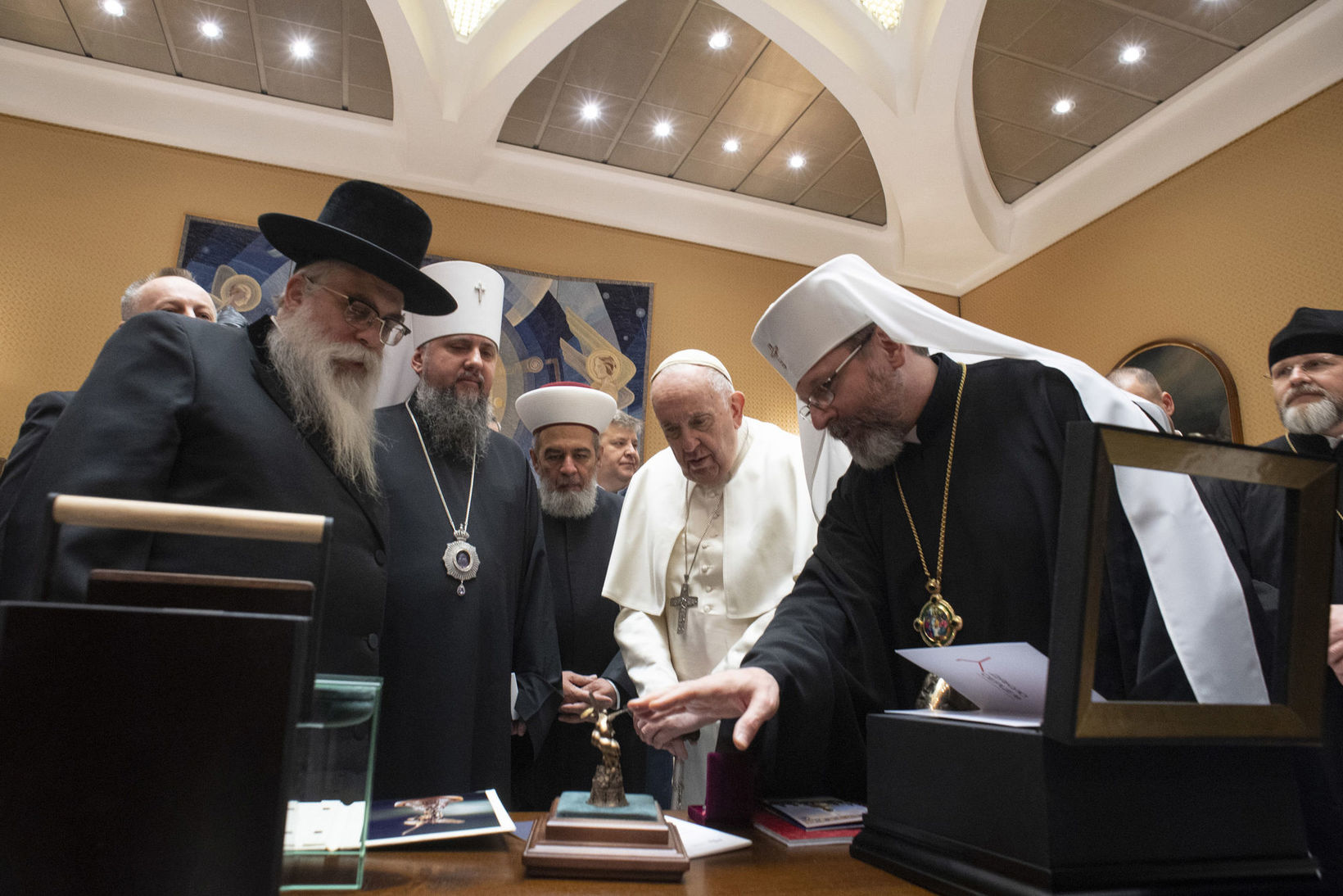
Humanitarian mission for Ukrainian victims
Initiative “Pope for Ukraine”
A significant contribution by Pope Francis in support of the Ukrainian people was the humanitarian campaign “Pope for Ukraine,” which was launched on April 24, 2016. At the initiative of the Holy Father, Catholic churches across Europe collected funds to aid those affected by the war in Donbas and internally displaced persons.
The Pope personally donated a substantial amount from his own funds. Over the course of the initiative (April 2016—November 2018), €15 million was raised, including €5 million from the Pope’s personal contribution. His aid served as a tangible gesture of solidarity from the Catholic Church with all those suffering in Ukraine, regardless of their faith, religion, ethnicity, or political beliefs.
During this period, approximately 980,000 people received assistance in various forms, including hospital patients, disadvantaged and large families, and elderly individuals living alone, who had lost everything and were left without even the bare necessities. It is important to note that this initiative was inclusive in nature. and aimed to support all affected Ukrainians, regardless of their religious affiliation.
Humanitarian Aid During the Full-Scale War
Since the outbreak of full-scale war in February 2022, the Vatican’s humanitarian support for Ukraine has taken on new forms. Cardinal Konrad Krajewski, the papal almoner (responsible for charity on behalf of the Pope), has visited Ukraine several times, including frontline areas. During his numerous visits, the cardinal provided ambulances and humanitarian aid, which were distributed among the most affected Ukrainians.
The cardinal’s visits to the fiercest battle zones, where he personally delivered aid and prayed with the victims, became a symbol of the Pope’s concern. These visits were not only practical, but also became a potent symbol of spiritual support for Ukrainians during the most trying times.
Treatment of Ukrainian children in the Vatican
An integral part of humanitarian aid was a program providing treatment for Ukrainian children affected by the war at the Bambino Gesù Children’s Hospital in the Vatican. On the initiative of Pope Francis, this leading European pediatric clinic opened its doors to Ukrainian children in need of complex treatment and rehabilitation.
Here, young Ukrainians received not only the most modern medical treatment, but also psychological support, which is so necessary for children traumatized by war. The program also provided assistance to the families of these children, including accommodation in Rome while they were undergoing treatment.
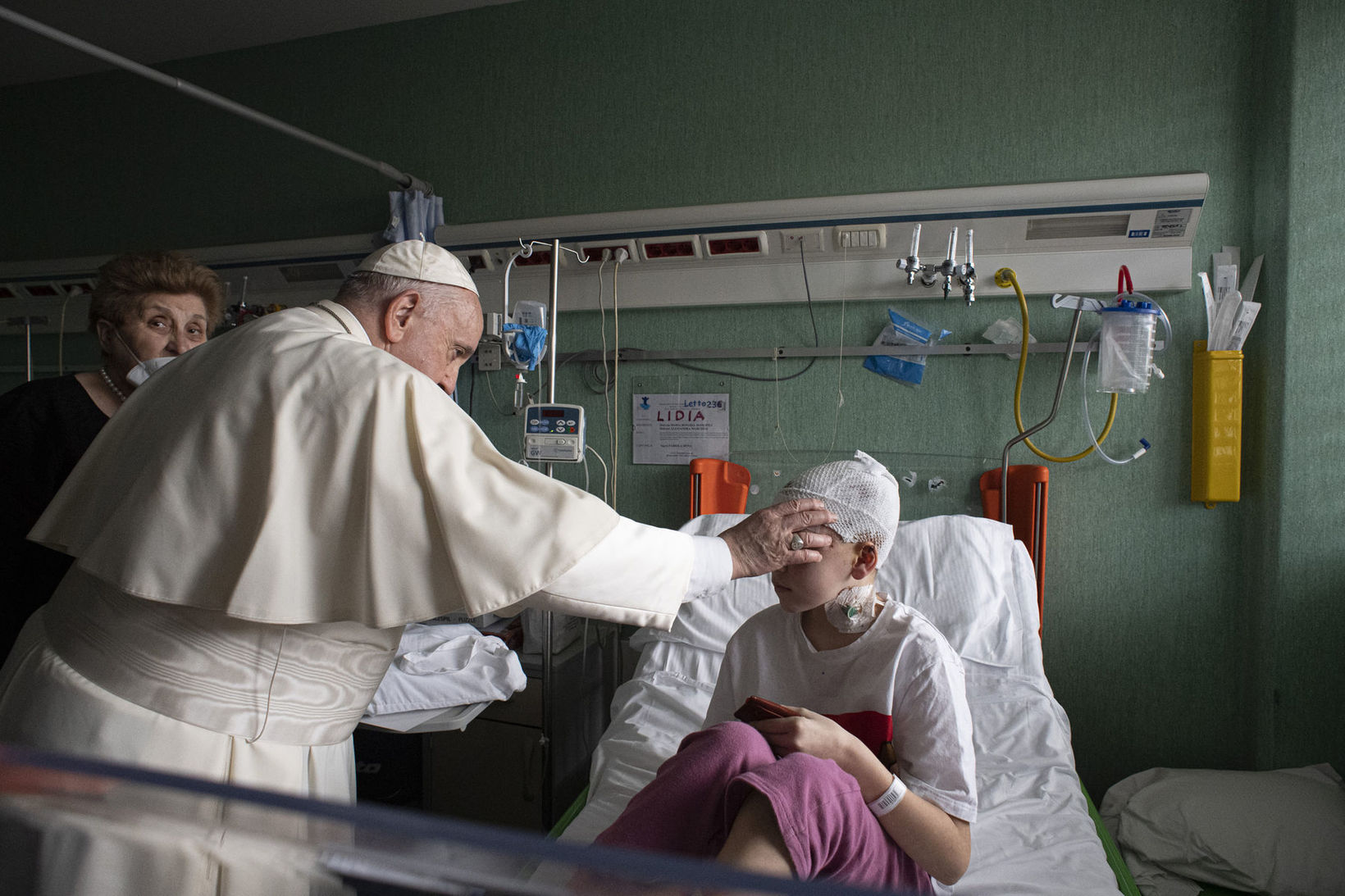
Facilitating the Return of Ukrainian Prisoners
A special focus of Pope Francis’ humanitarian efforts has been facilitating the return of Ukrainian military personnel and civilians from Russian captivity. Through the diplomatic efforts of the Vatican and the personal intervention of the Holy Father, many Ukrainians who had been held captive were released.
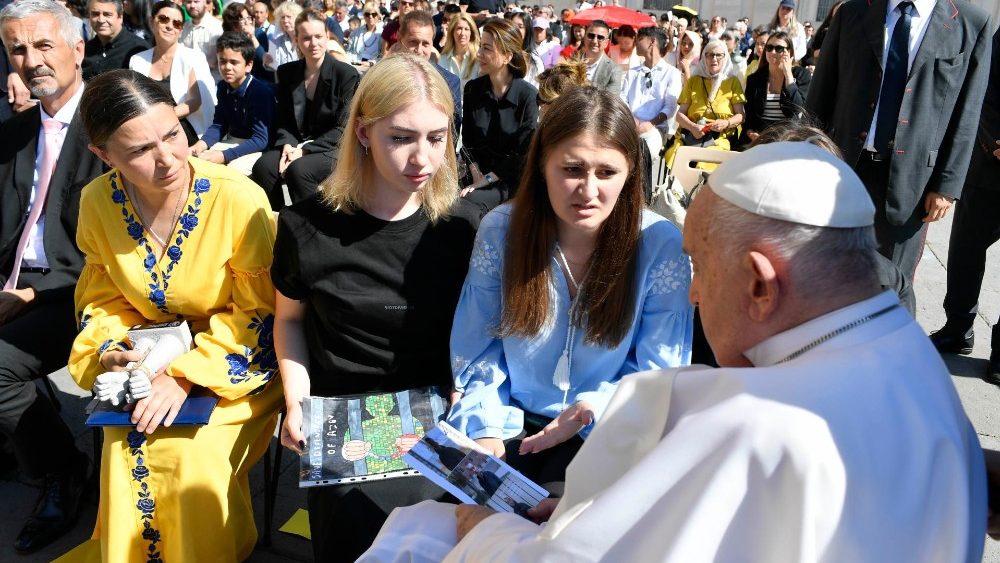
One notable moment in this effort was the return of two priests of the Ukrainian Greek Catholic Church, Father Ivan Levytsky and Father Bohdan Heleta. Their release was the result of negotiations involving Vatican diplomats and the personal intervention of the Pope.
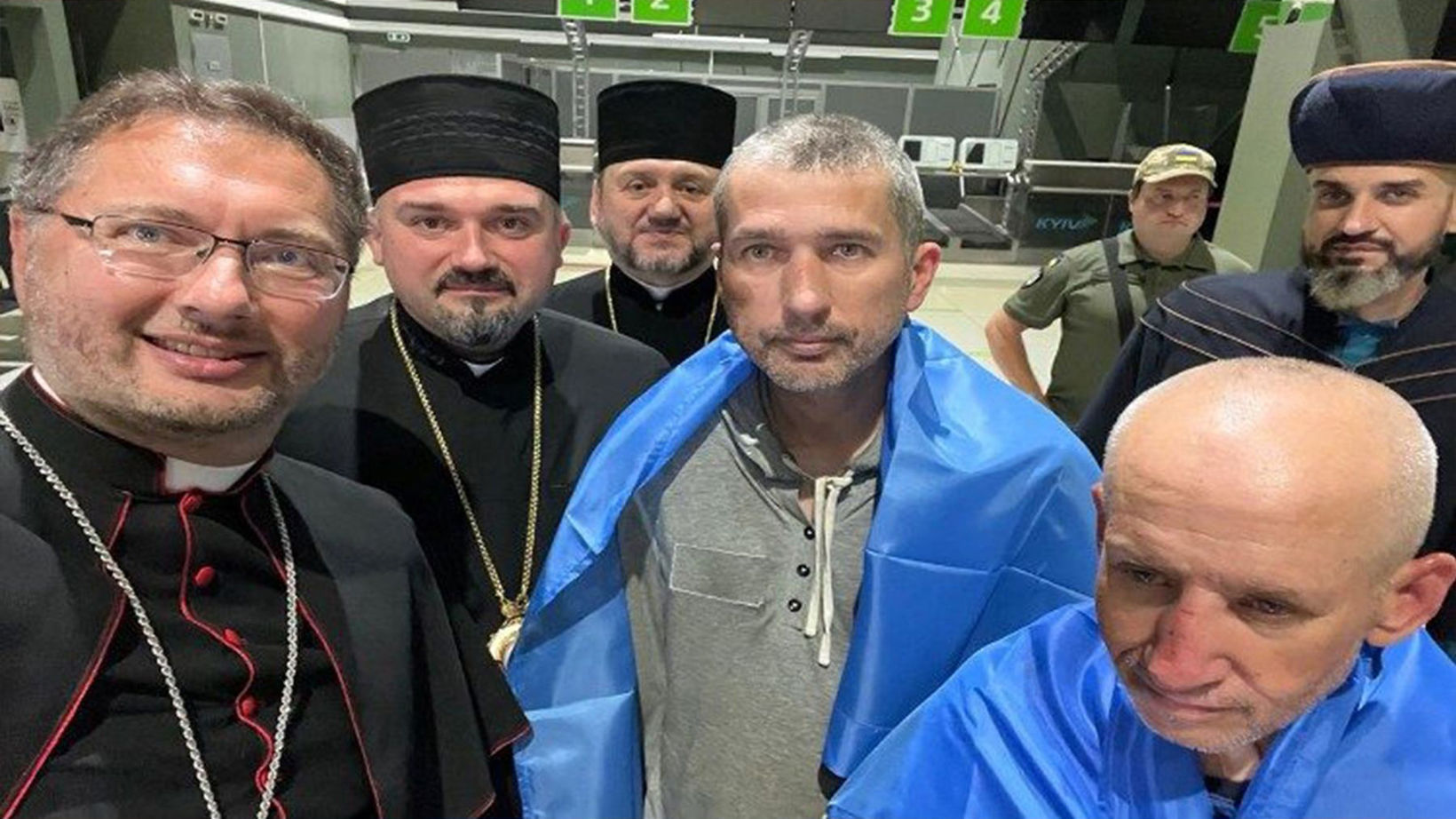
Continued support through charitable organizations
The Vatican has continued to provide humanitarian aid to Ukraine through various channels, including Caritas and other charitable organizations. Pope Francis has not only expressed concern and sympathy, but has also actively called on the international community to take concrete action to alleviate the suffering of the Ukrainian people.
Personal gestures that touched Ukrainians
Visit to the Ukrainian basilica in Rome
In addition to official statements and initiatives, Pope Francis demonstrated his deep personal connection to Ukraine through a myraid of symbolic gestures. One of the most touching moments was his visit on January 28, 2018, to the Ukrainian Basilica of St. Sophia in Rome, a Greek Catholic church in Italy built by Patriarch Josyf Slipyj.
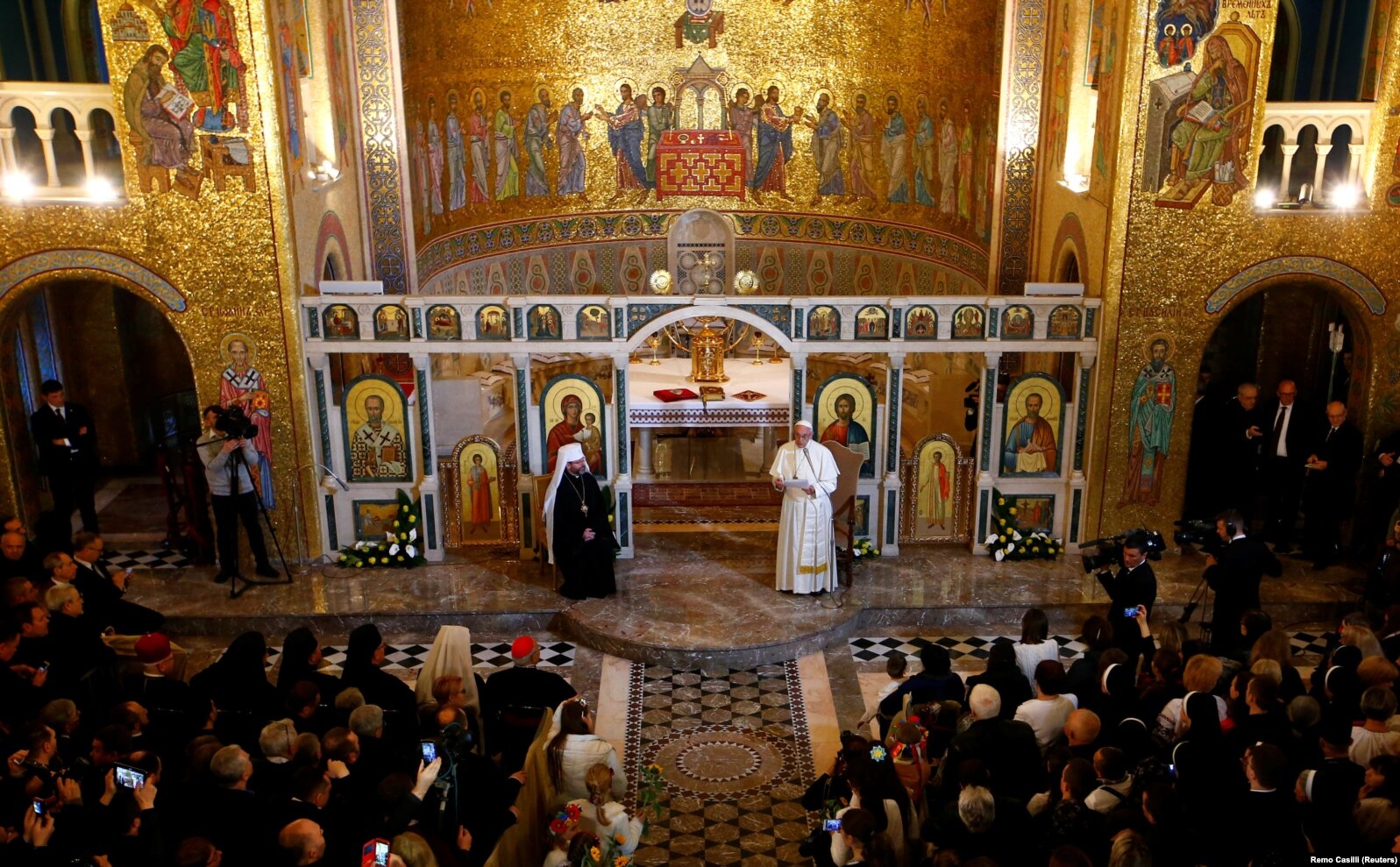
More than three thousand Ukrainians welcomed the pontiff on that day. In his speech, the Pope reflected on prominent figures of the Ukrainian Greek Catholic Church: Josyf Slipyj, Stefan Czmil, and Lubomyr Husar. He also commended the heroism of Ukrainian migrant women who preserve their faith and provide support to many elderly Italians, calling their work a mission of mercy. After his speech, the Pope descended into the crypt of the cathedral to honor the leaders of the UGCC buried there and symbolically released white doves into the sky as a sign of peace.
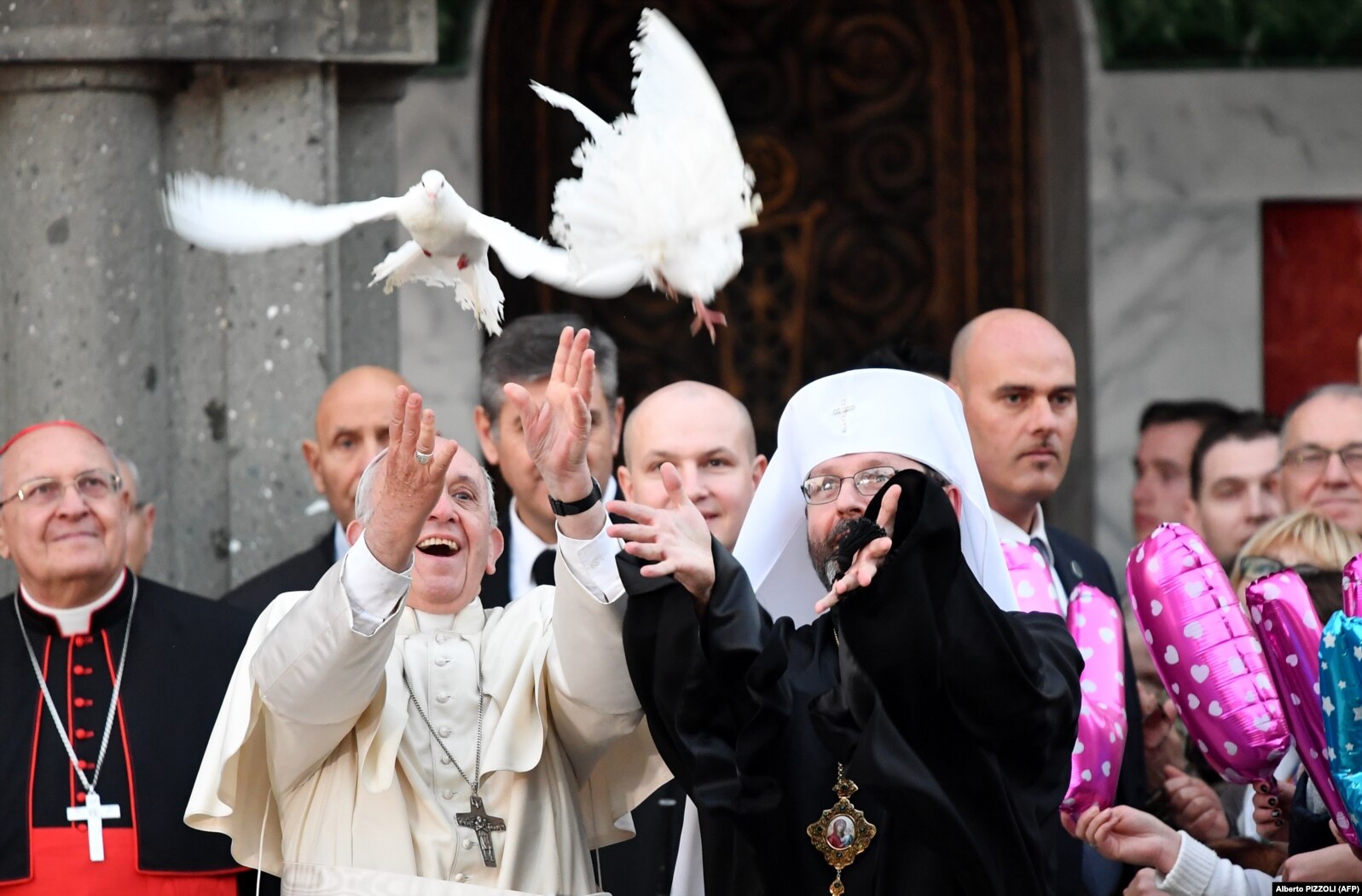
Daily Prayer Before a Ukrainian Icon
The most touching moment for Ukrainians, however, was Pope Francis’ personal testimony about his daily prayer. “I want to tell you a secret,” the Pope shared. “At night, before going to bed, and in the morning when I wake up, I always meet with Ukrainians… Every evening, before going to sleep, I kiss the icon of the Blessed Virgin Mary, which was given to me by your Supreme Archbishop, and in the morning I also greet her. So you could say that I begin and end my day in a Ukrainian way.”
This icon, presented to Pope Francis in Argentina by His Beatitude Sviatoslav, has become a special symbol of spiritual unity with the Ukrainian people. Daily prayer before it is not just a ritual but a profound gesture of solidarity in challenging times.
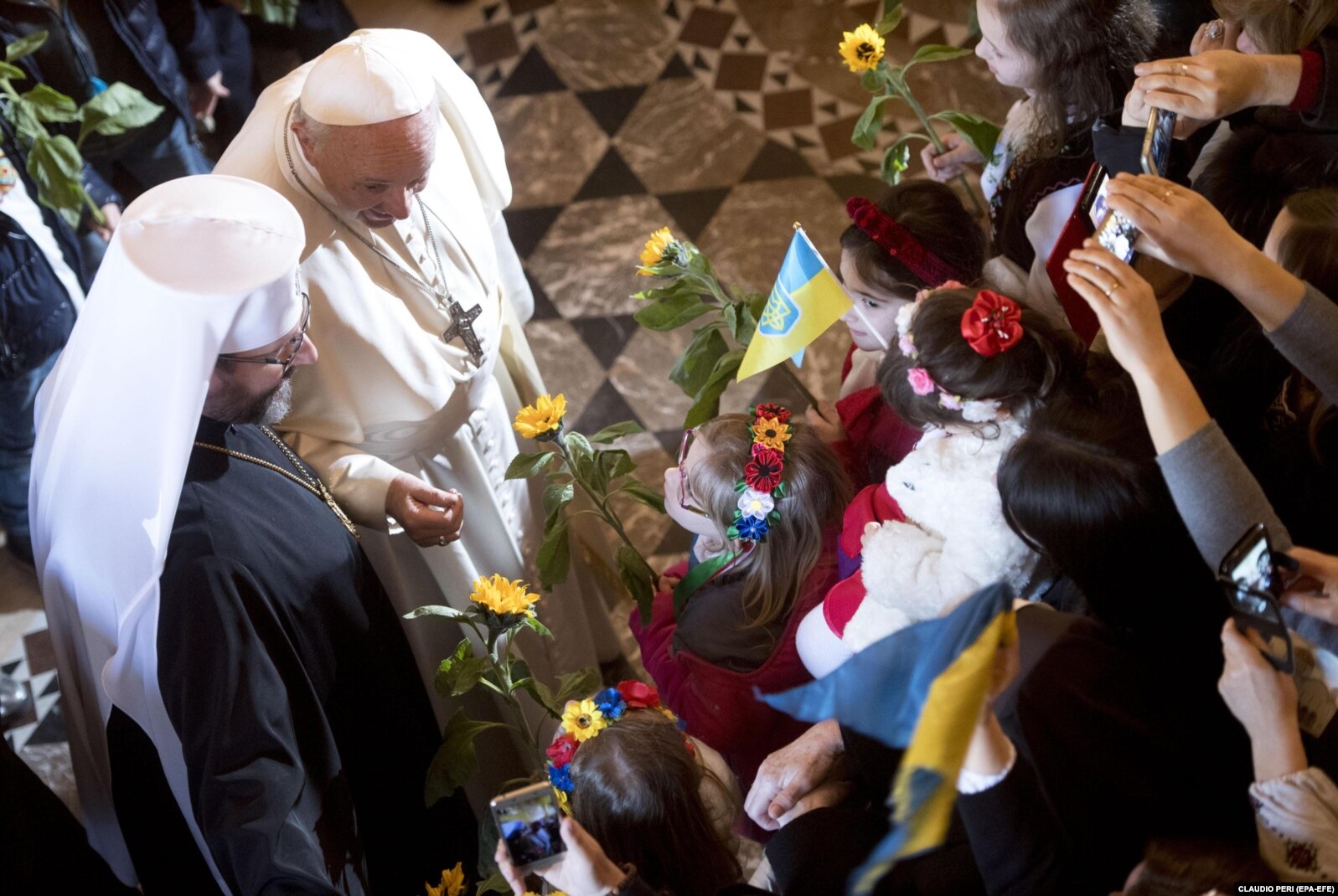
In his letter to the Ukrainian people dated November 24, 2022, the Pope again mentioned his prayer: “In Thea, as the great son of your land wrote, who ‘brought God into our world,’ let us not grow weary of asking for the gift of peace, confident that ‘nothing is impossible for God!’”
This touching spiritual connection—beginning and ending the day “in the Ukrainian way”—perhaps best illustrates the special place Ukraine holds in Pope Francis’ heart. Despite the geographical distance, he found a way to unite with the Ukrainian people in prayer every day, demonstrating that true solidarity transcends all borders and is expressed not only through official statements and humanitarian initiatives, but also in quiet, daily gestures of love and spiritual support.
Fr. Taras Zheplinskyi, Mykola Mudryk,
The UGCC Department for Information
